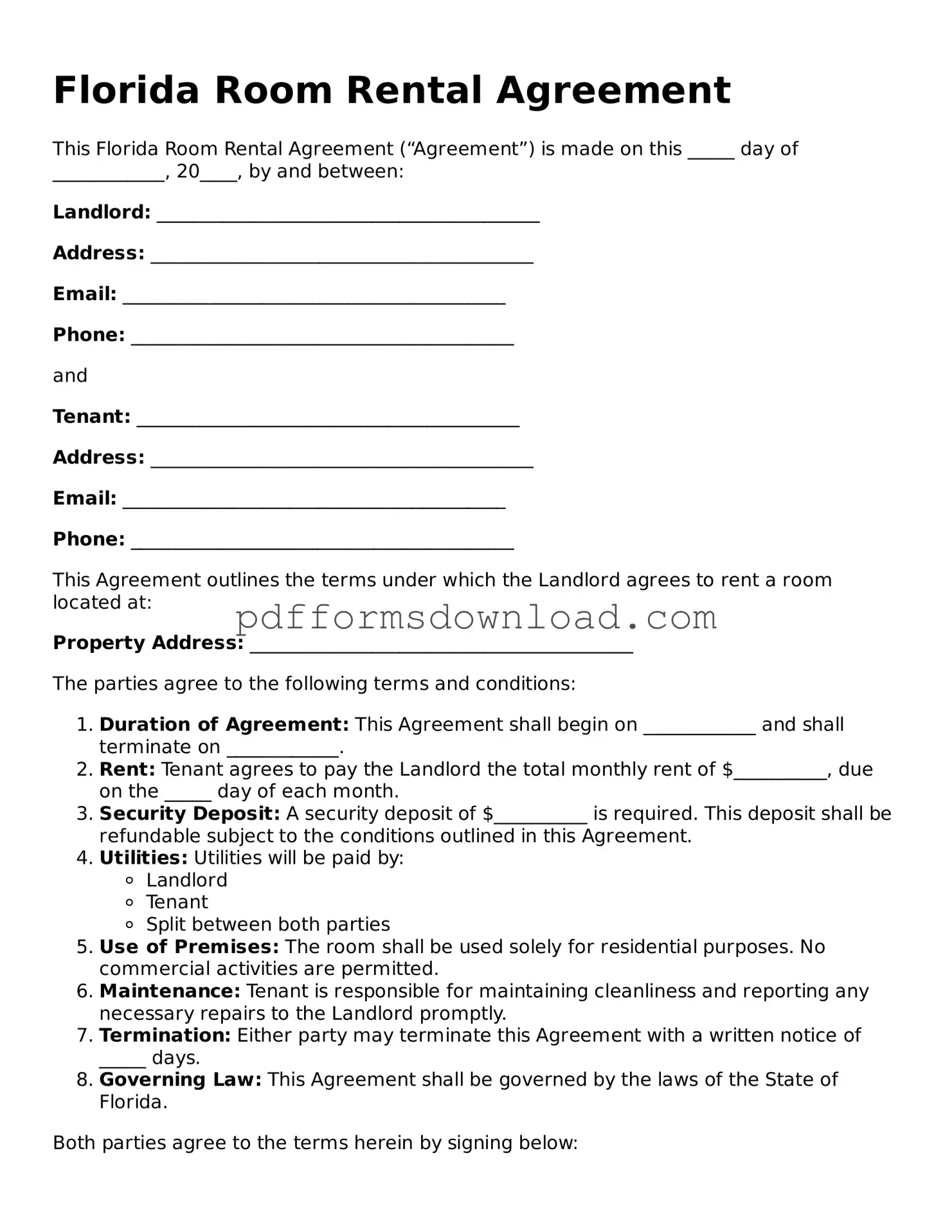What is a Florida Room Rental Agreement?
A Florida Room Rental Agreement is a legal document that outlines the terms and conditions between a landlord and a tenant for renting a room in a property. This agreement specifies details such as the rental amount, duration of the lease, and responsibilities of both parties.
What key elements should be included in the agreement?
Essential elements of a Florida Room Rental Agreement include the names of the landlord and tenant, the rental property address, the rental amount, payment due dates, security deposit details, and the duration of the lease. Additionally, it should outline maintenance responsibilities and any rules regarding the use of common areas.
Is a security deposit required?
Yes, a security deposit is typically required. This deposit serves as a financial safeguard for the landlord against potential damages or unpaid rent. Florida law regulates the maximum amount that can be charged and the conditions under which it can be withheld after the lease ends.
Can the rental agreement be modified?
Yes, the rental agreement can be modified, but both parties must agree to any changes in writing. It is important to document any amendments to ensure clarity and legal enforceability.
What happens if the tenant wants to terminate the agreement early?
If a tenant wishes to terminate the agreement early, they should review the terms of the lease. Most agreements include a clause outlining the procedure for early termination, which may involve providing written notice and paying a fee. Understanding these terms is crucial to avoid penalties.
Are there any specific laws governing room rentals in Florida?
Yes, Florida has specific laws that govern rental agreements, including the Florida Residential Landlord and Tenant Act. This law outlines the rights and responsibilities of both landlords and tenants, including issues related to eviction, repairs, and security deposits.
What should a tenant do if they encounter issues with the rental property?
If a tenant encounters issues with the rental property, they should first communicate the problem to the landlord in writing. If the landlord fails to address the issue in a timely manner, the tenant may have legal recourse, including the possibility of withholding rent or pursuing repairs independently, depending on the situation.
Can a landlord enter the rented room without notice?
No, a landlord cannot enter the rented room without providing proper notice. Florida law requires landlords to give tenants reasonable notice, typically 24 hours, before entering the property for repairs or inspections, except in emergencies.

